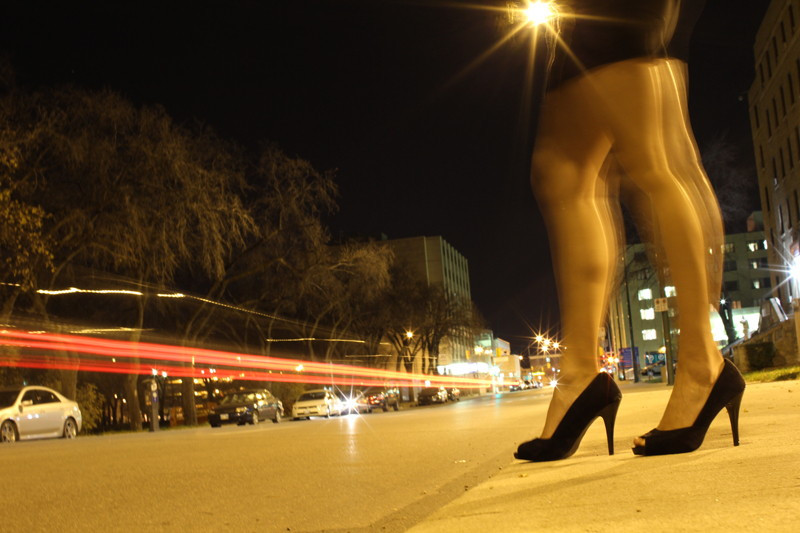Prostitution in the ‘Peg
Mayoral candidates weigh in on the prostitution debate
A landmark Ontario Superior Court ruling on the state of prostitution in Canada has lurched into the municipal campaign, with incumbent mayor Sam Katz and challenger Judy Wasylycia-Leis offering radically different approaches to the issue.
“There is no doubt in my mind that prostitution is an unfortunate curse on our society,” said mayor Sam Katz.
The Superior Court decision struck down three criminal code provisions: solicitation of prostitution, operating a “common bawdy house” and pimping. These items were ruled to be in violation of Section 7, the right to security of the person, in the Canadian Charter of Rights and Freedoms.
The current criminal code provisions also make prostitution out of a bawdy house an indictable offense. Street solicitation, a summary offense, leads to softer penalties like fines.
The judge argued that these provisions endanger women who are forced onto the street rather than the relative safety of a group setting.
The Crown was given 30 days to request an extended stay on the decision and mount an appeal.
According to federal justice minister Rob Nicholson, an extended stay, as well as an appeal, is imminent.
Katz believes that “prostitution is prostitution” regardless of where it is done.
“My personal opinion is that if you eliminate the johns, you eliminate prostitution,” he said.
The mayor did not make any specific commitments on how the city can work with the police to help eliminate johns, however.
Division 40 (Vice) of the Winnipeg Police Service (WPS) would not comment on the Ontario Superior Court ruling or on any strategies used to crackdown on johns in the city.
“ ...Prostitution is an unfortunate curse on our society.
Sam Katz
However, Constable Robert Carver, acting public information officer for the WPS, highlighted the distinction between street solicitation and the operation of a bawdy house.
“Anyone can decide to stand on a street corner and solicit,” he said. “It takes a more organized commitment to the crime to operate out of a bawdy house and the criminal code provisions reflect that.”
Judy Wasylycia-Leis has a far different view of prostitution in Winnipeg and elsewhere.
“I’m disappointed that the federal government has decided to appeal it (the Ontario decision),” she said.
“I think putting their resources toward women’s organizations and to supports for women would make for a more positive outcome than an appeal.”
Wasylycia-Leis wants to see a better relationship between the police and the organizations that support women in the sex trade.
She was short on specifics, however, and reiterated her pledge to establish an anonymous crime tip line, similar to the Powerline in south Point Douglas.
The tip line would make it easier for prostitutes to report assault and rape without the fear of a criminal prosecution against them, she said.
Neither Katz or Wasylycia-Leis made any mention of the Salvation Army Prostitution Diversion Program (PDP), a program that introduces women to the resources needed to transition out of the sex trade.
Through their website, the Salvation Army recently expressed the need for housing and community support for the program within Winnipeg.
“Just charging the prostitutes for soliciting and just charging the johns for procuring isn’t going to address the fundamental issues,” said Colleen Allan, a consultant with the Addictions Foundation of Manitoba, adding that prostitution is inextricably linked to poverty and addiction.
The stigma associated with prostitution has kept it out of the municipal campaign, according to Allan. It has ensured that politicians talk about the issue in a two-dimensional way, she said.
Published in Volume 65, Number 7 of The Uniter (October 14, 2010)







